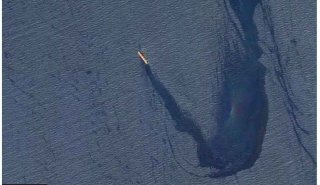China Is Aiding Houthi Attacks in the Red Sea
Amid Iranian defeats across the Middle East, the Houthi rebels in Yemen are increasingly turning to China for missile components to use against the West.
The Yemen-based Houthi rebels have found a new backer: the People’s Republic of China. In a recent report published by i24 News, U.S. intelligence sources detail the undercover collaboration between Beijing and the Iranian-backed terror group which has perpetuated the ongoing instability in the Red Sea. While the Houthis have indiscriminately carried out attacks targeting warships and shipping vessels alike in these waters for years, the rebel group's maritime strikes have escalated following the October 7, 2023, massacre in Israel. According to the Israel-based news outlet, the Houthis are now using Chinese-designed weapons in their attacks. In exchange, the terror group will cease attacks on ships flying the Chinese flag. With a shared mutual contempt for the West, Beijing and Tehran’s collaboration in the region makes sense.
An overview of Red Sea barrages
Iran has suffered significant blows over the last year. From the decimation of Hamas in Gaza and Hezbollah’s leadership in Lebanon to the collapse of the Assad regime in Syria, Tehran’s clout in the Middle East is rapidly deteriorating. Lacking the resources and weapons needed to continue its asymmetric objectives in the region, the regime has relied on China and Russia for support. The rogue allies are largely isolated from the international community and therefore lean on each other for arms, funds and even training at times.
According to i24 News, American intelligence services have uncovered a complex supply chain which provides the Houthis with the sophisticated components needed for their ballistic and cruise missiles. As detailed in the report, “Houthi leaders are reportedly planning to manufacture hundreds of cruise missiles capable of striking Persian Gulf states, using these same Chinese components. Washington has repeatedly passed on this information to Beijing since September, including detailed lists of Chinese companies involved in this arms mechanism.”
Chinese-Iranian collaboration is only expanding
The Houthis’ increased barrages targeting ships in the Gulf of Oman mark a dangerous escalation. Since roughly one-fifth of the world’s crude oil traded by sea passes through the Strait of Hormuz, these attacks hamper the flow of the global economy. The Houthis deploy lethal UAVs, missiles, rockets and other projectiles in their frequent barrages. From October 2023 to mid-2024 alone, the rebel group attacked more than five dozen vessels in the Red Sea. Clearly, the Iranian-backed Houthis depend on a constant influx of these weapons in order to keep up with this rate of attacks. Beijing’s delivery of the key components required by these aerial weapons to function enables the Houthis directly.
The Chinese-Iranian collaboration on this front coincides with the allies’ determination to establish a new international order based on their own rules. Beijing, Tehran, Moscow and even Pyongyang are increasingly working together to undermine the U.S. and Western power. The People’s Republic of China has also allegedly interfered in the ongoing Russian invasion of Ukraine by providing drones to Moscow. Now that U.S. intelligence services have uncovered China’s material support for a group perpetuating attacks against Israel, the U.S. and other Western nations, the depth of this collaboration is even more alarming.
Maya Carlin, National Security Writer with The National Interest, is an analyst with the Center for Security Policy and a former Anna Sobol Levy Fellow at IDC Herzliya in Israel. She has by-lines in many publications, including The National Interest, Jerusalem Post, and Times of Israel. You can follow her on Twitter: @MayaCarlin. Carlin has over 1,000 articles published over the last several years on various defense issues.
Image: CENTCOM.

